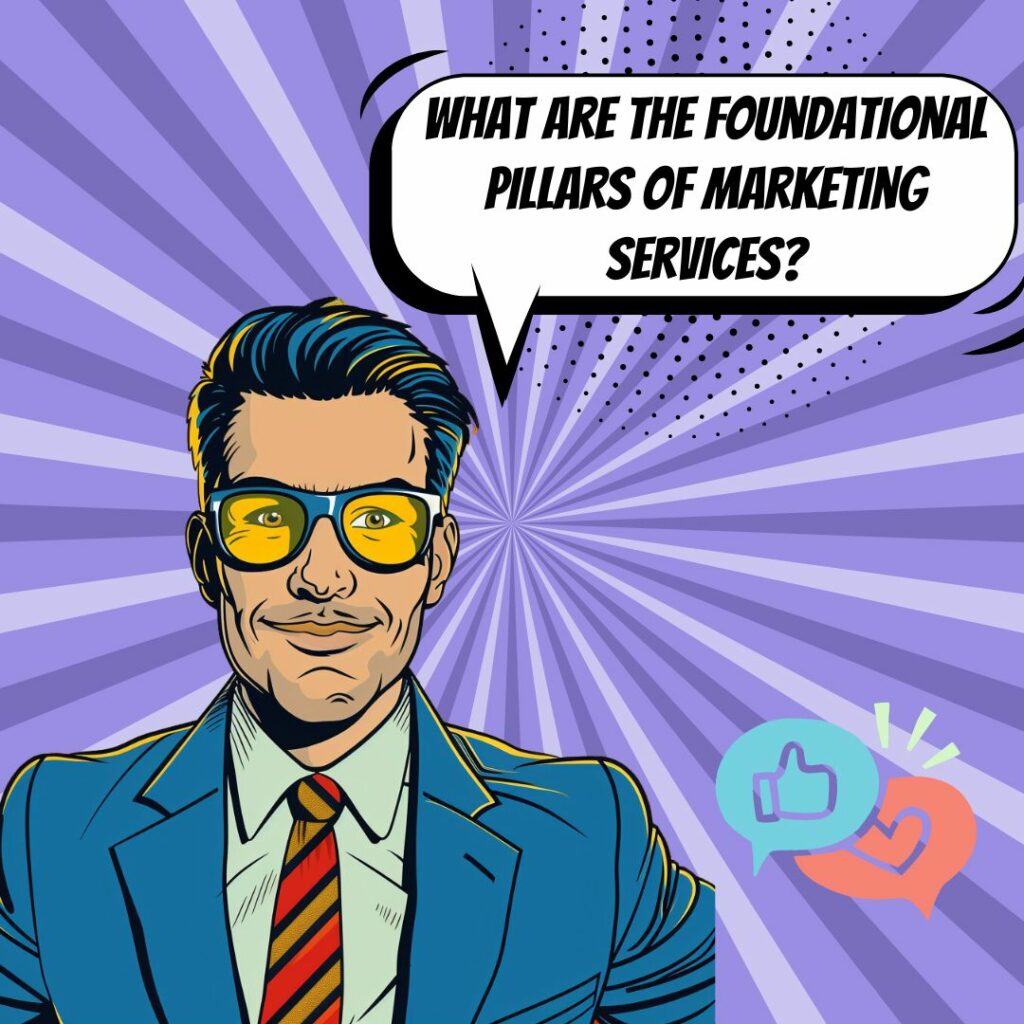Key Takeaways
✅ Customer-centric Strategies: Transcend conventional marketing by placing the customer at the heart of every tactic. Understand and predict your customer’s journey to provide exceptionally personalized experiences, fostering loyalty and propelling satisfaction into unparalleled territory.
✅ Data-driven Insights: Navigate the terrain of marketing with the compass of data, where every decision is informed by analytics and research. Master the ability to distill actionable patterns, predict market trends and harness consumer feedback for optimized campaign performance.
✅ Multi-channel Mastery: In a realm where digital touchpoints are infinite, weave an integrated multi-channel strategy that ensures cohesive brand storytelling. Embrace the power of ubiquity by engaging your audiences through their preferred channels, creating a symphony of brand consistency.

Introduction
Have you ever wondered what invisible forces propel brands from obscurity into the spotlight? It’s not serendipity—it’s strategic, unwavering, soul-stirring marketing services. Today, these foundational pillars stand not just as concepts, but as the mighty engines driving business growth and brand affinity.
In the arena of modern commerce, where every click, every view, and every swipe means something, understanding the seven essential pillars of effective marketing becomes indispensable. Prepare to embark on an eye-opening journey, where each twig of wisdom added to your nest is meticulously selected for its power to lift your business to towering heights.
Unlock innovative trends and solutions tailored to maximize not just your revenue but also your return on ad spend (ROAS) and return on investment (ROI). Lean in as we promise to unfurl the sails of your marketing efforts, catching the winds of actionable insights and groundbreaking information, guaranteed to steer your ship towards the lands of prosperity and beyond.
Top Statistics
| Statistic | Insight |
|---|---|
| Email Marketing ROI: 4200% average return on investment (DMA, 2021) | Investing in email marketing offers considerable leverage in terms of return – a compelling reason for it to be a staple in your marketing mix. |
| Content Marketing Efficiency: Costs 62% less than traditional marketing and generates three times more leads (Demand Metric, 2020) | Content is king, and this statistic proves its efficiency, providing a strong incentive for brands to produce valuable and relevant content consistently. |
| Digital Marketing Spend: Projected to reach $526 billion by 2024 (eMarketer, 2021) | Businesses are rapidly increasing their online marketing budgets, a clear signal of the growing importance of digital channels in the marketing landscape. |
| Social Media Presence for Brands: 70% of consumers expect brands to have a social media presence (Sprout Social, 2021) | The expectation for brand engagement on social platforms offers a window into consumer behavior, underscoring the role of social media in building customer relationships. |
| Gen Z Consumers: Gen Z constitutes 40% of global consumers (McKinsey, 2021) | Capturing the attention of Gen Z requires unique marketing strategies that resonate with their values and preferences, often through digital and social media channels. |
Understanding Your Target Audience
Grasping who your target audience is forms the bedrock of effective marketing strategy. This goes beyond mere demographics; it’s about digging into psychographics, understanding pain points, and recognizing buying habits. Diligent market research leverages tools such as surveys, focus groups, and data analysis to uncover these insights. Creating buyer personas is a powerful method to virtually step into your customers’ shoes, allowing you to tailor marketing messages that resonate deeply and drive engagement.
Defining Your Brand Identity
Brand identity is your business’s visual and verbal handshake with the world. It starts with the basics like logo design and color schemes but extends far and beyond this to include nuanced messaging and brand tone. Every touchpoint, from your social media presence to your email newsletters, needs to echo a consistent voice. The end goal? To build trust and credibility with your audience, ensuring that your brand’s values align with what your customers are seeking and expect.
Crafting Compelling Content
Content isn’t just king—it’s the entire kingdom. The quality of your content plays a pivotal role in attracting and hooking customers, potentially turning them into brand advocates. Creating engaging content across mediums—be it blog posts, explainer videos, or eye-catching infographics—is non-negotiable. And in the vein of best practices for SEO, content must be crafted not just for human eyes but also for the ever-evolving algorithms of search engines, ensuring visibility and traction.
Leveraging Multiple Channels
Today’s customer journeys are far from linear, making the utilization of multiple marketing channels a must. From email marketing to shoppable social media posts, paid ads, influencer partnerships, to offline events—the avenues are plenty. Deciphering the most impactful channels for your audience fortifies your marketing mix. But, the real magic happens when these channels are woven into a seamless omnichannel marketing tapestry, delivering a consistent and personalized customer experience.
Measuring Success and Adapting Strategies
As with any aspect of business, marketing is measured and iterated upon. Establishing clear KPIs is integral to understanding campaign performance. Regular data analysis proffers insights, not just in terms of what’s working, but also reveals chinks in the armor—areas begging for improvement. Adaptability is key, as it ensures that marketing strategies are not set in stone but are living entities, evolving alongside market trends and customer feedback.
Inspirational Quotes
1. “Marketing is not the art of finding clever ways to dispose of what you make. It is the art of creating genuine customer value.” – Philip Kotler
This quote emphasizes the core principle of marketing: understanding customers’ needs and crafting solutions to fulfill them. By prioritizing customer value over product promotion, marketers can build stronger relationships, foster loyalty, and ultimately drive business success.
2. “Good marketing makes the company look smart. Great marketing makes the customer feel smart.” – Joe Chernov
In this statement, Chernov highlights the power of empathy in marketing. Rather than boasting about one’s own brand, great marketing empowers consumers by educating and helping them make informed decisions. This approach builds trust, enhances credibility, and encourages long-term engagement.
3. “The best marketing doesn’t feel like marketing.” – Tom Fishburne
Fishburne’s quote underscores the importance of authenticity and relevance in marketing. When brands create experiences tailored to their audience’s interests and preferences, they can transcend traditional advertising and forge meaningful connections. This strategy requires deep consumer insights, creativity, and a willingness to experiment.
AI Marketing Engineers Recommendation
Recommendation 1: Leverage Data-Driven Personalization: According to a survey by Epsilon, 80% of consumers are more likely to make a purchase from a brand that provides personalized experiences. To harness this potent strategy, integrate advanced Customer Relationship Management (CRM) tools and AI algorithms to collect and analyze user data, thereby delivering tailored marketing messages and product recommendations. Use this wealth of data to fuel dynamic content creation, targeted email marketing campaigns, and personalized online experiences that resonate with individual consumer preferences and behaviors, resulting in increased conversions and customer loyalty.
Recommendation 2: Adopt Omnichannel Marketing Strategies: With the retail industry witnessing the rise of omnichannel shopping behavior, it’s essential to have a seamless marketing approach that aligns your brand messaging across all platforms and devices. Harvard Business Review reports that 73% of customers use multiple channels during their shopping journey. Therefore, orchestrate your marketing efforts to provide a consistent, unified brand experience, whether your customers are interacting with you via mobile apps, social media, or in-store. Utilize an omnichannel marketing platform to precisely track and engage with your customers at every touchpoint, boosting visibility, and leveraging data insights to optimize the user journey from discovery to conversion.
Recommendation 3: Optimize with AI-Enhanced Analytics Tools: To stay ahead of the curve, integrate AI-powered analytics tools such as Google Analytics 4 (GA4) into your e-commerce strategy. These advanced systems provide granular real-time data, predictive analytics, and customer-centric reporting features. By adopting GA4, businesses receive future-proof solutions that comprehend multifaceted consumer behavior, anticipate trends, and personalize outreach efforts. The benefits extend beyond traditional analytics, aiding in the identification of high-value audiences, enhancing ROI through smart bidding, and delivering actionable insights to refine your marketing mix in an ever-evolving e-commerce landscape.
Conclusion
As we conclude our exploration of the foundational pillars of effective marketing services, let’s reflect comprehensively on their transformative power within the e-commerce landscape. Understanding your target audience is not merely a facet of a marketing strategy, but the cornerstone that ensures your message resonates profoundly and precisely. Similarly, a clearly defined brand identity doesn’t just differentiate you from competitors; it fosters a relationship built on trust and authenticity with your audience.
Crafting compelling content isn’t a suggestion; it’s an imperative that elevates the visibility and engagement of your brand. In today’s digital bazaar, content that informs and captivates is king. And let’s not forget the strategic deployment across multiple channels. Here, an omnichannel approach doesn’t just increase reach—it creates a seamless experience for your customer, regardless of where they encounter your brand.
But our insights don’t halt at creation and distribution. The continuous practice of measuring success and adapting strategies through robust analytics is what turns good marketing into great marketing that not only reflects the present but anticipates future trends and behaviors.
Embrace these pillars as more than theories, they are actionable assets that, when leveraged, profoundly elevate the efficacy of your marketing endeavors. Forge ahead, knowing that each aspect of your marketing services is a stepping-stone towards unparalleled growth and innovation. Be bold, be strategic, and let these pillars uphold a marketing legacy that is uniquely yours. After all, in the realm of e-commerce, the only constant is change, and those who adapt with insight and agility will not just survive, but thrive.
FAQs
Question 1: What are the core foundations of marketing services?
Answer: The core foundations of marketing services include understanding customer needs, developing a strong brand identity, creating effective communication strategies, utilizing various promotional channels, and measuring marketing performance through data analysis.
Question 2: How do I identify my target audience in marketing services?
Answer: Identifying your target audience involves conducting thorough market research, analyzing demographic information, studying consumer behavior patterns, and segmenting audiences based on shared characteristics such as age, gender, income level, interests, and geographical location.
Question 3: Can you explain the 4Ps (Product, Price, Place, Promotion) of marketing services?
Answer: The 4Ps (also known as the marketing mix) is a framework used by marketers to develop successful marketing strategies. Product refers to the goods or services offered, Price is the cost of the product, Place refers to the distribution channels used to reach customers, and Promotion encompasses advertising, public relations, and other methods used to communicate with the target audience.
Question 4: What is the importance of branding in marketing services?
Answer: Branding is crucial in marketing services as it helps establish a unique identity, creates an emotional connection with customers, and fosters trust and loyalty. A strong brand can differentiate a business from competitors, increase customer recognition, and drive long-term success.
Question 5: How can I measure the effectiveness of my marketing services?
Answer: Measuring the effectiveness of marketing services involves tracking key performance indicators (KPIs) such as website traffic, conversion rates, customer engagement, sales revenue, and return on investment (ROI). Analyzing these metrics can help identify areas for improvement and guide data-driven decision-making.
Question 6: What are some common marketing channels for services?
Answer: Common marketing channels for services include social media, email marketing, content marketing, search engine optimization (SEO), pay-per-click (PPC) advertising, influencer marketing, and event marketing. The choice of channels depends on the target audience, marketing goals, and available resources.
Question 7: How can I create a compelling value proposition for my marketing services?
Answer: Creating a compelling value proposition involves understanding customer needs, emphasizing unique selling points (USPs), communicating benefits clearly, and differentiating your offerings from competitors. It should concisely convey why your service is valuable and why customers should choose you over others.
Question 8: What is customer journey mapping, and how can it benefit marketing services?
Answer: Customer journey mapping is the process of visualizing and understanding the steps customers take when interacting with a brand. It can benefit marketing services by identifying pain points, optimizing touchpoints, enhancing the customer experience, and driving customer loyalty.
Question 9: How can I stay up-to-date with the latest trends and best practices in marketing services?
Answer: Staying up-to-date with the latest trends and best practices in marketing services involves regularly reading industry publications, attending conferences and webinars, networking with peers, and experimenting with new strategies and technologies.
Question: What are some common mistakes to avoid in marketing services?
Answer: Common mistakes to avoid in marketing services include neglecting customer research, failing to define clear marketing goals, underestimating the importance of branding, ignoring customer feedback, and not measuring marketing performance.
Academic References
- Grönroos, C. (2018). Services Marketing: Integrating Customer Focus Across the Firm (3rd ed.). CRC Press. This book underscores the significance of centering marketing strategies on the customer, advocating for a company-wide integration of customer experiences to amplify value creation.
- Lusch, R.F., & Vargo, S.L. (Eds.). (2014). Service Dominant Logic: Continuing the Evolution. Journal of Marketing. This compilation advances Service-Dominant (S-D) logic, a transformative viewpoint that interweaves co-creation in all economic exchanges, offering a groundbreaking vision of value in services marketing.
- Pine II, B.J., & Gilmore, J.H. (1999). The Experience Economy: Competing for Customer Time, Attention, and Money. Harvard Business School Press. Pine and Gilmore make the compelling case for an evolution toward providing customer experiences, detailing a dynamic framework for the conceptualization and realization of memorable experiences that deliver sustainable value.
- Czepiel, J.A., Solomon, M.R., & Suprenant, C. (Eds.). (1990). The Service Encounter: Managing Employee/Customer Interaction in Service Businesses. Lexington Books. This resource highlights the pivotal role of service encounters in shaping customer perceptions and lays out effective strategies for enhancing these vital interactions.
- Heskett, J.L., Sasser Jr., W.E., & Schlesinger, L.A. (1997). The Service-Profit Chain: How Leading Companies Link Profit and Growth to Loyalty, Satisfaction, and Value. The Free Press. This insightful publication introduces the Service-Profit Chain and elucidates the interconnectedness of employee satisfaction, customer loyalty, and business profitability, providing actionable strategies for nurturing these key relationships.













